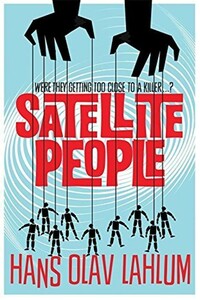The Catalyst Killing | страница 59
I stared at him, fascinated. If Frans Heidenberg was still a Nazi, he struck me as being a Nazi with an extremely human face.
‘I know what you are thinking: how could I put myself in that situation? It was in part my strong German roots, but more my fear of Bolshevism that had been stoked by tales of horror from the Russian Revolution in my youth. In the 1930s, I thought that the alternative to a strong Germany ruled by the Nazis was a strong USSR ruled by the Bolsheviks. And I saw the latter as a far greater threat. And I might as well admit that I still do.’
He smiled and shrugged disarmingly.
‘But all that is now well in the past, and I hope that my life today is of little interest to you. I would of course be more than happy to help you to solve your crimes if I could, but I must say that I do not see how that is possible.’
I asked him whether he had heard of Marie Morgenstierne or Falko Reinhardt. He replied without any hesitation that Marie Morgenstierne was unknown to him, other than what he had read in the papers following her ‘unfortunate demise’.
He did, however, to my surprise, admit that the name Falko Reinhardt was familiar to him. He had received a letter from Falko a couple of years before, asking if he would be willing to answer some questions about his role during the Second World War. He had, however, not felt comfortable fraternizing with communists and for his part had no desire to rip open old wounds from the war. He had therefore sent a reply to say that he did not wish to be contacted about the matter. And he had repeated this in a firm and friendly manner when Falko Reinhardt later telephoned him all the same.
He had heard nothing more from the young man. But he did remember the unusual name, and had read about Reinhardt’s disappearance in the newspaper only a few months later. Frans Heidenberg had anticipated that the police might contact him, and therefore ensured that he had a written statement from his two nephews and two other employees to say that he had been at a party with them in Oslo on the night that Falko Reinhardt went missing in Valdres. He placed it on the table in front of me and said that rock-climbing had never been one of his strengths – even less so now than when he was younger, he added with an ironic smile.
When I asked him if he had an alibi for the evening of Marie Morgenstierne’s murder two days before, Frans Heidenberg could regrettably only say that he had been home alone. He found it very hard, however, to see why he would be suspected of killing a woman forty-five years younger than himself whom he had never heard of, let alone met.




